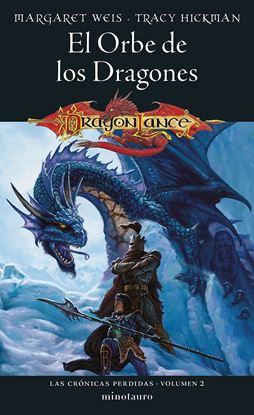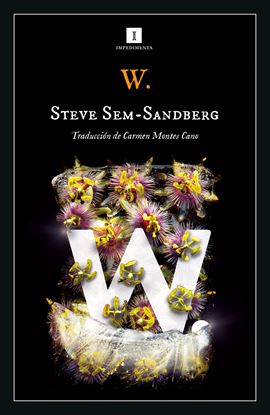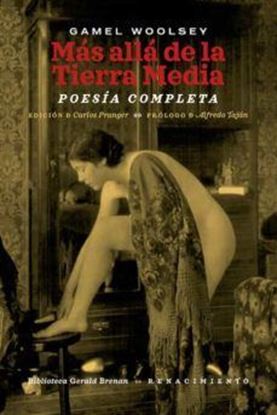

EL ORBE DE LOS DRAGONES. CRONICAS 2/3
La temida Dama Azul, Kitiara, pone en marcha un complot que conducirá a los caballeros solámnicos hasta el límite del glaciar en busca del Orbe de los Dragones, y su rival Laurana inicia un viaje hacia el destino cuando Sturm, Flint, Tasslehoff y ella se unen a los caballeros en su peligrosa misión.
Pero es Kitiara la que afronta un reto crucial. Jura pasar la noche en el lugar más temido de Krynn: el alcázar de Dardaard. Nadie que se haya aventurado en ese sitio pavoroso ha vuelto para contarlo, pero Kit tiene que enfrentarse a Soth o afrontar la muerte a manos de su reina.
1,250
W.
En 1821, Johann Christian Woyzeck mata a puñaladas a la viuda Johanna Woost, y es ajusticiado tras una larga controversia en torno a su salud mental. Este crimen inspiraría a Georg Büchner para escribir, en 1836, la que consideramos la primera obra de teatro contemporáneo, Woyzeck. En su celda, mientras la luz recorre las paredes, Woyzeck recuerda: los años, los días, las horas que precedieron a su crisis, alimentada por un amor loco por su amante, la viuda Woost, a la que apuñaló en plena calle, a la vista de todos los transeúntes. Vadeando los torturados recuerdos que se agolpan en su cabeza, el propio asesino encarcelado busca darle sentido a su experiencia en un rompecabezas de locura, deseo, crimen y culpa. Con la Europa de principios del siglo XIX como marco, W. pinta un descarnado y certero autorretrato del hombre moderno que apenas empezaba a dar entonces sus primeros pasos. Un hombre que se esfuerza por poner en pie los acontecimientos de su caótica vida, que se aferra a lo poco que entiende de este mundo tras innumerables traumas y pesadillas.
1,250
GUARDIANA DE FUEGO (FUEGO SAGRADO 1)
Él le abrirá las puertas del Infierno.
Marcada desde su nacimiento con unos extraños ojos violetas y un enigmático legado familiar, Ares Parisi ha vivido siempre como una chica normal, hasta que descubre que su historia está envuelta por más secretos y misterios de los que nunca pudo imaginar. Será entonces cuando decida pedir ayuda al atractivo Adonis, que la llevará de la mano en una investigación hacia un mundo oscuro y sensual donde las leyendas conviven con la realidad.
Rituales. Sexo. Demonios.
Lena Valenti, autora best seller con más de 500.000 lectores en todo el mundo, regresa con la primera entrega de la trilogía del Fuego Sagrado, su novela más adictiva. Una saga llena de intriga y erotismo solo apta para valientes.
Déjate envolver por las llamas del placer.
1,250
CIEN RAZONES PARA ODIARTE (MIS RAZO. 1)
Elena es una chica responsable, nada alocada e incapaz de sacrificar su futuro profesional por una relación.
Elena tiene un archienemigo desde el colegio al que llama «el Indeseable».
Y Elena acaba de despertar junto a él en su cama después de la boda de su mejor amiga...
Marcos lleva toda la vida sacando de quicio a Elena con sus comentarios de sobrado y sus ojos azules como el mar.
Marcos quiere olvidar los malos rollos y dejarse llevar durante el verano por una atracción irresistible antes de volver a Londres.
Y, aunque Elena intenta ignorarle, Marcos es tan obstinado como sexy y la química entre ellos resulta inevitable.
1,250
NERD 2. JAQUE MATE
LA PARTIDA LLEGA A SU FIN.
Sinaí Ferreira haría cualquier cosa para conseguir a Axer Frey, pero haría muchas más por ganarle y si eso significa poner en marcha la partida más importante de su vida que así sea.
La relación con los Frey se intensifica cada vez más y termina por atrapar a Sinaí en medio de las disputas y rencillas familiares, pero en vez de temerlos, los reconoce como rivales dignos de su intelecto.
Así que llega el momento: las piezas están colocadas en el tablero y ya es hora de que alguno dé jaque mate a esta tensa persecución que comenzó con una simple partida de ajedrez.
1,250
MAS ALLA DE LA TIERRA MEDIA
Más allá de la Tierra Media constituye parte del legado literario y vital de la escritora estadounidense Gamel Woolsey. Siempre a la sombra de su compañero, el proteico Gerald Brenan, hispanista original y de enjundia, su voz poética, elegante y sigilosa, tras muchos años silenciada, se publica por primera vez en español. Desfilan por sus poemas la infancia y el paso del tiempo; el amor físico y el platónico, aunque también su pérdida; la literatura, el arte y la música como modos de salvación. Pero descuella, sobre todo, el extrañamiento ante la Naturaleza y sus ciclos, esto es, el choque con la realidad y la búsqueda de respuestas frente a la muerte.
1,250














